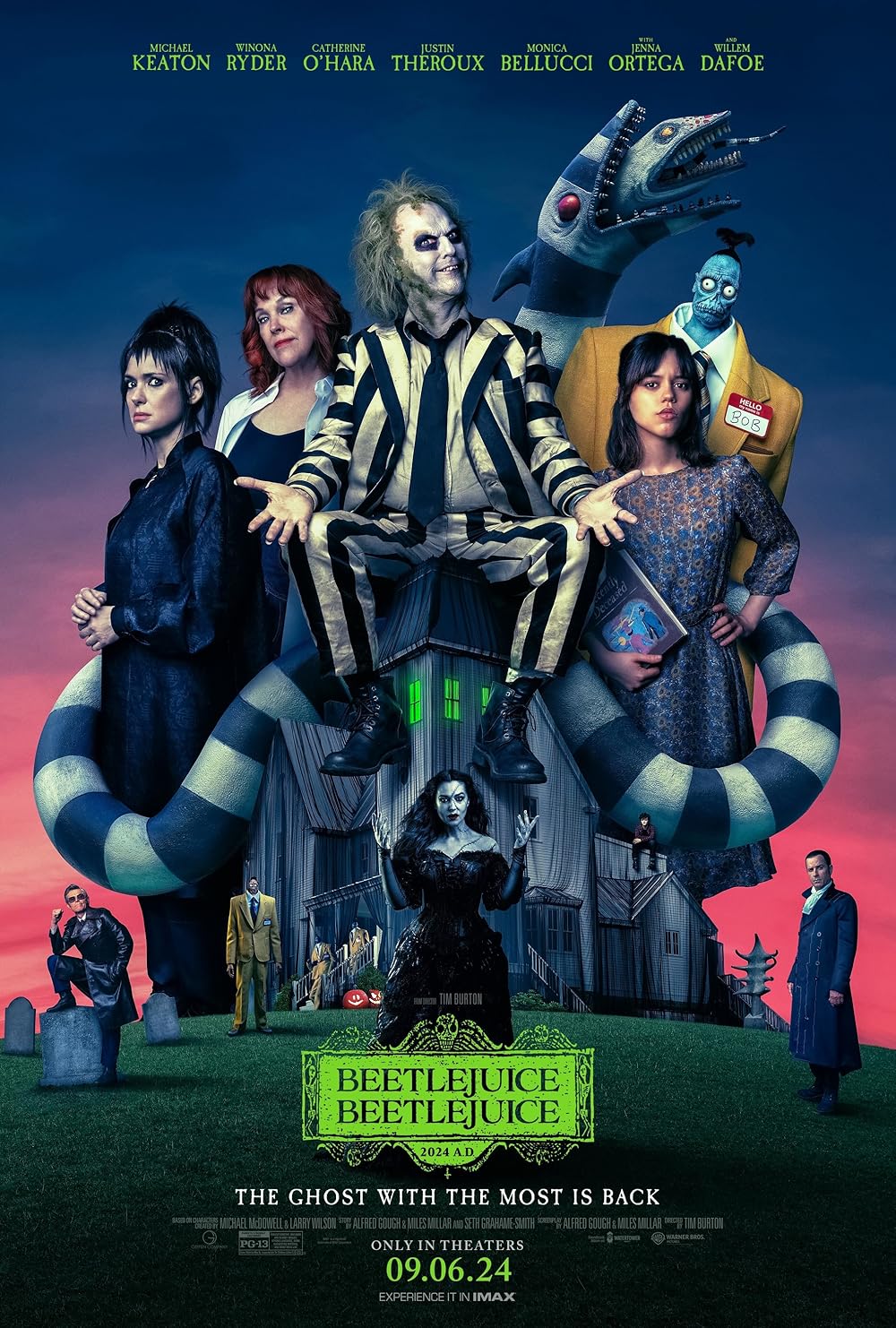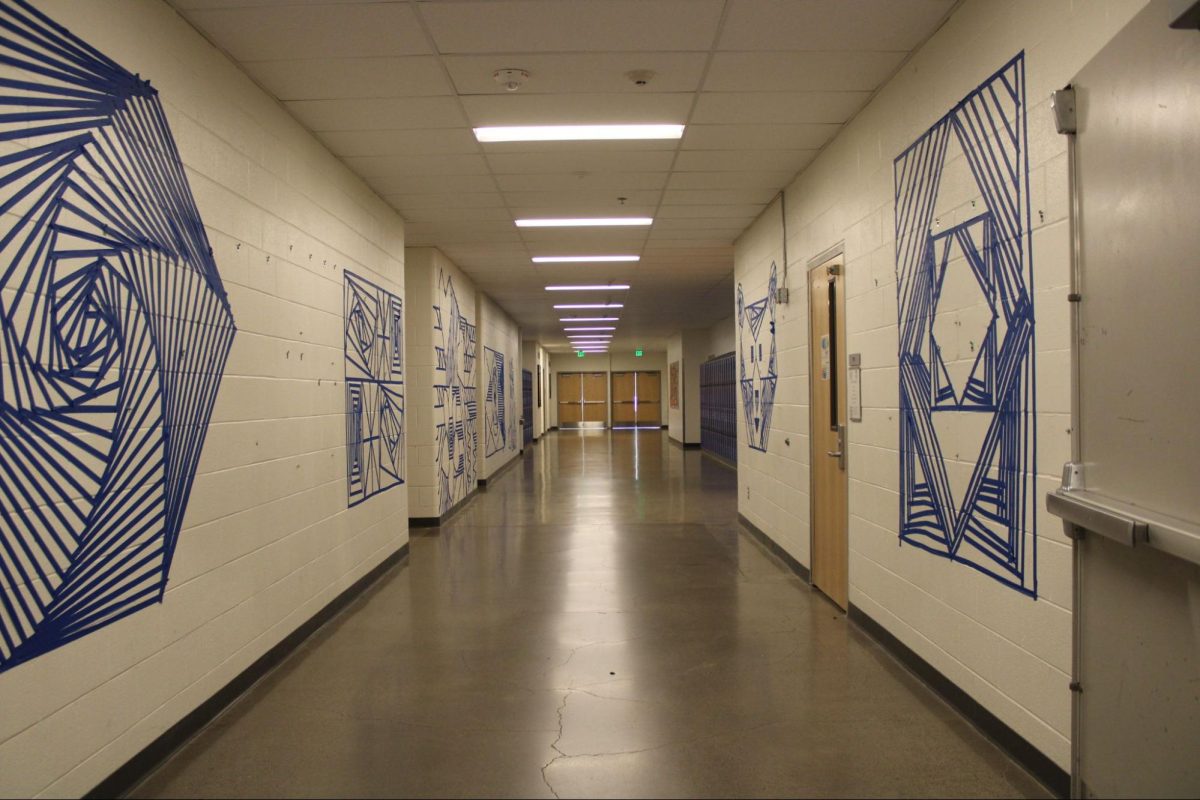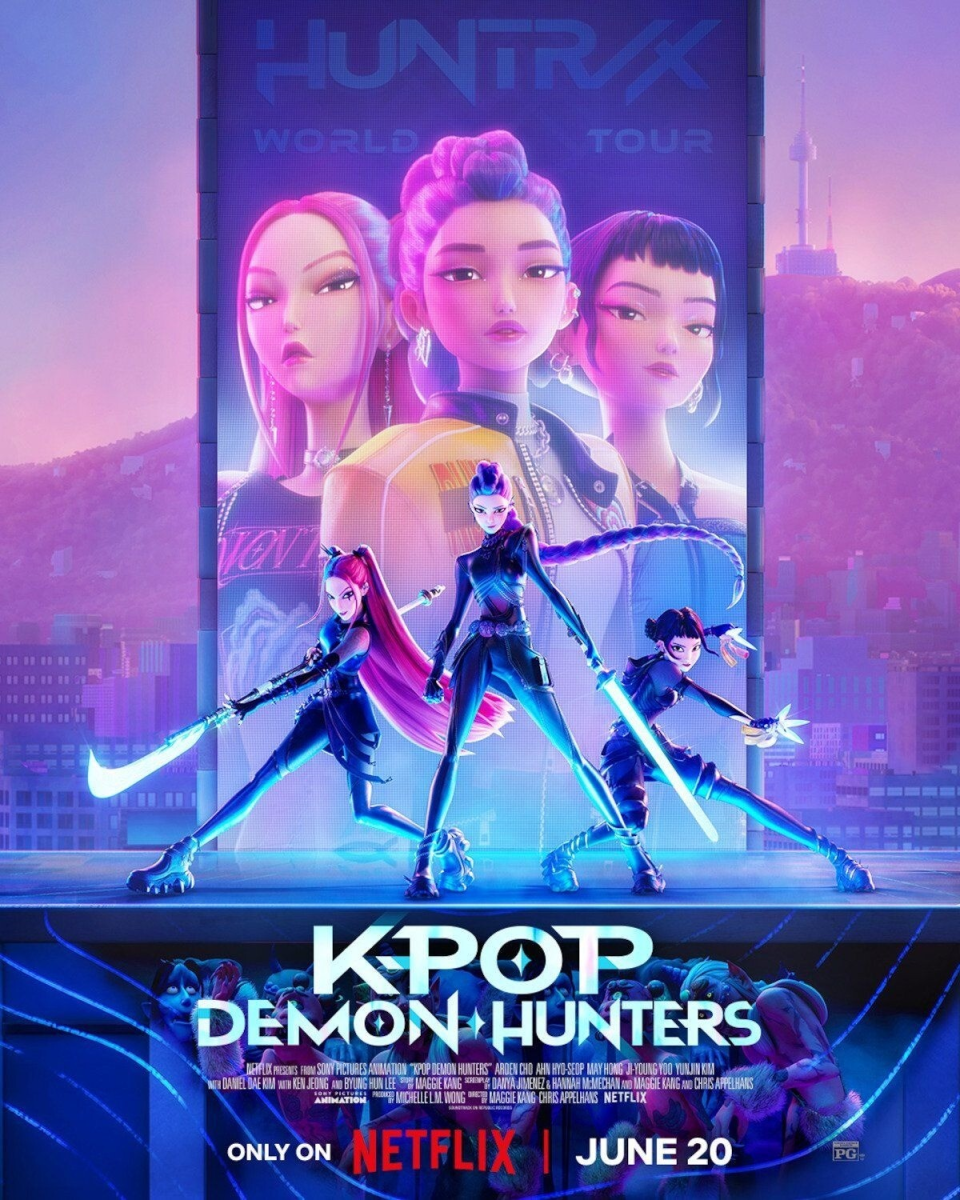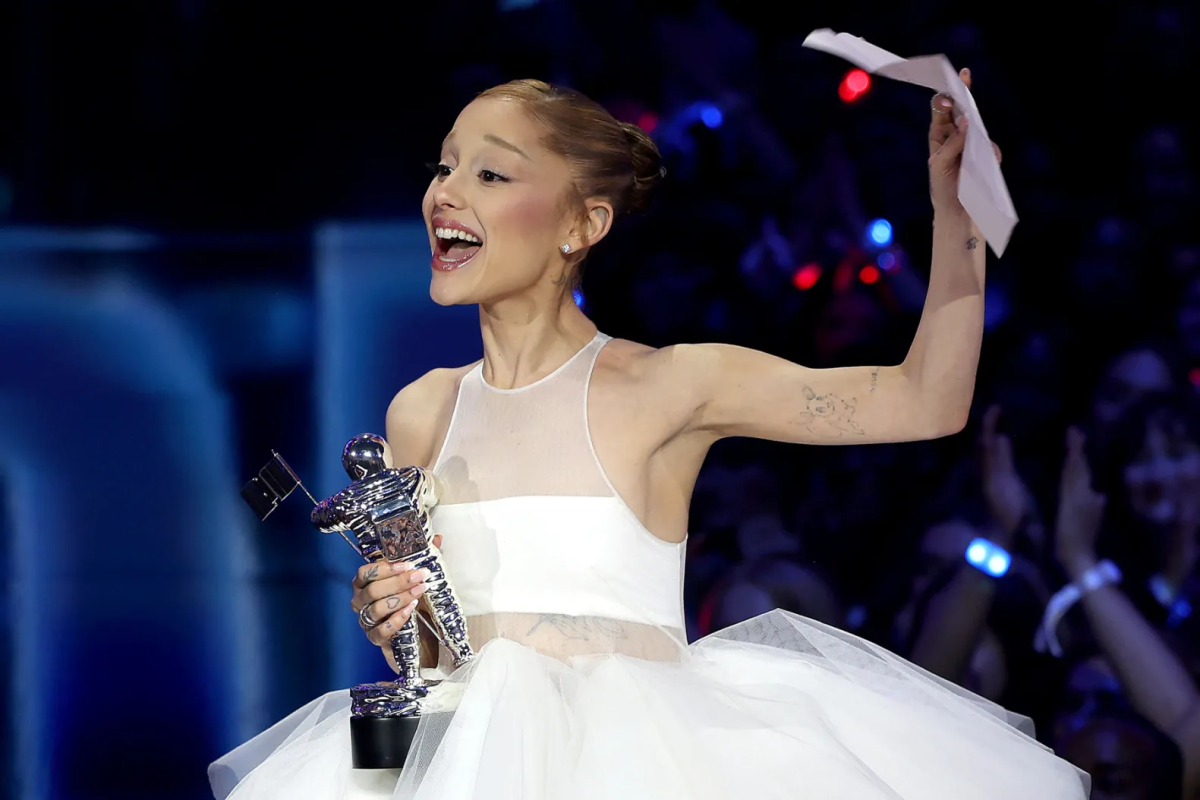Tim Burton’s 1988 horror-comedy classic, Beetlejuice, has been given the full sequel treatment this year with Beetlejuice Beetlejuice. Winona Ryder, Catherine O’Hara, and Micheal Keaton all reprise their roles from the original and are joined by new additions to the cast including Jenna Ortega, Willem Dafoe, and Monica Bellucci. Behind the camera, Tim Burton returns as director and executive producer, along with Brad Pitt, whose production company, Plan B, financed the film. Long-time Burton collaborator Danny Elfman also returns to provide the score.
The 36-year gap between this film and the original may not do much to inspire confidence in its quality. After all, there have been a litany of modern sequels to beloved classic franchises of late that have completely missed the mark. At first glance, Beetlejuice Beetlejuice looks like it may be another in that same trend. However, it should be said that much of the charm and whimsy of the original film is happily intact, owing likely to the involvement of so much of the creative force behind the original. Let there be no doubt, Beetlejuice Beetlejuice is a worthy successor and a competent sequel to a much-loved film. Not to mention, this movie is just plain fun. The characters and story are just as darkly heartwarming as fans of Burton have come to expect from his work. The performances are solid across the board, with Dafoe, Keaton, and O’Hare standing out especially. The overall look of the movie is incredible, from the costuming and set design to the cinematography and special effects, everything oozes with the same macabre flair as the original.
Picking up more than three decades after the events of Beetlejuice, this film follows Lydia Deetz (Ryder), no longer a sullen and cynical teenager, she has become a celebrity ghost hunter and the host of a popular daytime television show. She is called suddenly back to her family home, along with her manager and boyfriend, Rory (Justin Theroux), her stepmother, Delia (O’Hara), and her estranged daughter, Astrid (Ortega), when she learns that her father was killed while vacationing in the Amazon. Lydia soon realizes that she has bigger things to worry about than her stepmother’s avant-garde approach to grief, or a sudden and ill-timed proposal from Rory, when she begins to experience visions of a threat she thought was long behind her, Betelgeuse. As Halloween approaches, Lydia and her family find themselves smack dab in the middle of a chaotic, supernatural mess involving a jilted lover, a washed-up television star, a vengeful ghost, a sandworm, and the spirit world’s one and only Bio-Excorcist.
On paper, this plot is fantastic. Writers Alfred Gough and Miles Millar have essentially taken the foundation laid by the original and expanded it in nearly every way. The more chaotic structure and generally faster pacing inject a good deal of energy into the story and make the sequel feel altogether smoother and snappier.
However, while no individual component of this film is bad, when you put it all together it does start to come apart at the seams. At times, it feels like Beetlejuice Beetlejuice is trying to do too much at once. In fact, nearly every problem this movie has is structural in nature. Many characters and subplots are relegated to the background as the film bounces from set piece to set piece at breakneck speeds. Multiple arcs are introduced early on and are simply forgotten or glossed over by the end. Unfortunately, the villains suffer the same fate; there are no less than four antagonists in this movie, and the story is spread so thin that it hardly has time to let any of them shine. And yet, the film still finds time for seemingly frivolous elements, like a protracted gag paying homage to, of all things, Soul Train, a reference that contributes very little to the overall story, and will likely fly straight over the heads of anyone in the audience under 30. In addition, Beetlejuice Beetlejuice takes a long time to get started, which leads to the second and third acts being noticeably more compressed than the first.
This all leads to a climax which is indicative of the big problem facing this movie: there’s simply too much going on. Every major plot thread is resolved in a matter of minutes, one after another, with hardly any breathing room between them. And bafflingly, even as the film scrambles to tie up its loose ends, it still manages to make time for an overly long and completely out-of-place musical number. And while none of these things diminish the fun and charm of the film, or take away from the love and care that was obviously put into making it, they do hold it back from being as good as it could have been. Beetlejuice Beetlejuice is a lot of fun, and at times it even manages to outshine its predecessor in some ways. But it is bogged down with a cramped script that can’t quite handle the ambition of the filmmakers







